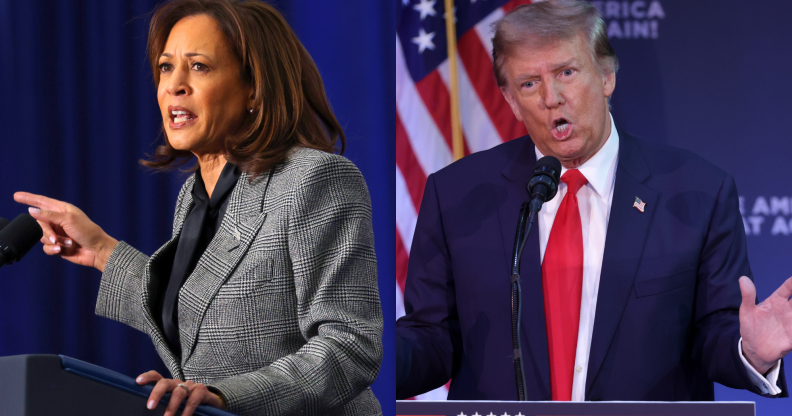Equalities watchdog wants to exclude most trans people from single-sex spaces, leak suggests
Baroness Kishwer Falkner. (Parliament)
The Equality and Human Rights Commission (EHRC) has considered plans to exclude trans people from single-sex spaces without a Gender Recognition Certificate (GRC), leaked guidance has shown.
An “unpublished guidance pack dated from the end of 2021” was leaked to Vice World News, the latest in a string of revelations relating to anti-trans sentiment within the EHRC, the UK’s equalities watchdog.
The documents showed that the EHRC, which says it works to “promote and uphold equality and human rights ideals and laws across England, Scotland and Wales”, has been working on proposed guidance advising organisations like prisons and gyms, as well as businesses, to bar trans people from single-sex spaces unless they hold a GRC.
Obtaining a GRC is intrusive and difficult. Less than one per cent of trans people in the UK have one, and the system does not recognise non-binary people, meaning that the vast majority of trans and non-binary people would be impacted.
The commissioners of the EHRC are appointed by minister for women and equalities Liz Truss. In 2020 she named Baroness Kishwer Falkner as chair.
Former EHRC staff members told Vice World News that Falkner had said “excluding trans people” from single-sex spaces would “protect women’s rights”.
Falkner was also reported to have been incensed when John Lewis introduced gender-neutral changing rooms last year, with one former employee saying: “Falkner was furious about John Lewis ‘letting down women’.” Another added: “She was being transphobic… The team just wants to exclude trans people more.”
One source currently working at the EHRC said that it didn’t matter if the guidance was actually enforceable, adding: “The leadership team aren’t worried about that, they just want organisations to know that they won’t be sued for being transphobic.”
The charity Mermaids said that such guidance would be unlawful if true ” as people don’t need a GRC to be protected by the Equality Act”.
“The idea that someone could be excluded from services without one is a fiction,” it added on Twitter.
“The EHRC has completely lost any sense of credibility and the trust of our community. Its duty is to advance equality, yet it is actively doing the opposite for trans people. An urgent root and branch reform is needed, starting with a new chair that is truly independent.”
If you’re worried about anything in @BenInLDN‘s story and need to talk to someone, our helpline team are here for you. Call 0808 801 0400 or visit our website. (3/3)
— Mermaids (@Mermaids_Gender) February 10, 2022
Jo Maugham, director of The Good Law Project, echoed this, saying that he would challenge any such “unlawful guidance”.
It goes without saying that if @EHRC issues that plainly unlawful guidance we will challenge it. If you would like to contribute to our fighting fund (so far: two fights, two victories) you can do so here. https://t.co/75Zjv7MQJi
— Jo Maugham (@JolyonMaugham) February 10, 2022
Trans Safety Network urged followers to contact their local MP.
Regarding the planned guidance in this:
1) The proposed guidance is completely illegal. Raise this with your local MP at https://t.co/zA1NqDRS1b
Remember to let them know how this would affect you. https://t.co/6dChWN5Gs3— Trans Safety Network (@trans_safety) February 10, 2022
The GRC system, governed by the Gender Recognition Act, requires trans people to first get a diagnosis of gender dysphoria, which can take years due to the painfully-long waiting times at NHS gender clinics.
Medical reports must be submitted to a panel, judge whether they meet the criteria for legal recognition. Only a few thousand trans people have been granted Gender Recognition Certificates since they became available in 2004.
The EHRC did not immediately respond to a request for comment from PinkNews. It reported refused to address the specifics of the revelations when asked to by Vice World News, but said in response: “We acknowledge that some EHRC staff have been unhappy, which we regret, and we are working hard to explain decisions and why they are in line with our statutory responsibilities.
“Sex and gender reassignment are legally protected characteristics under the Equality Act 2010, as are seven other characteristics. The Human Rights Act 1998 protects all rights in a balanced and proportionate way.
“These are the laws that the EHRC upholds impartially and we totally refute your insinuations of bias in the areas you mention.”
Baroness Kishwer Falkner was also contacted for comment.






